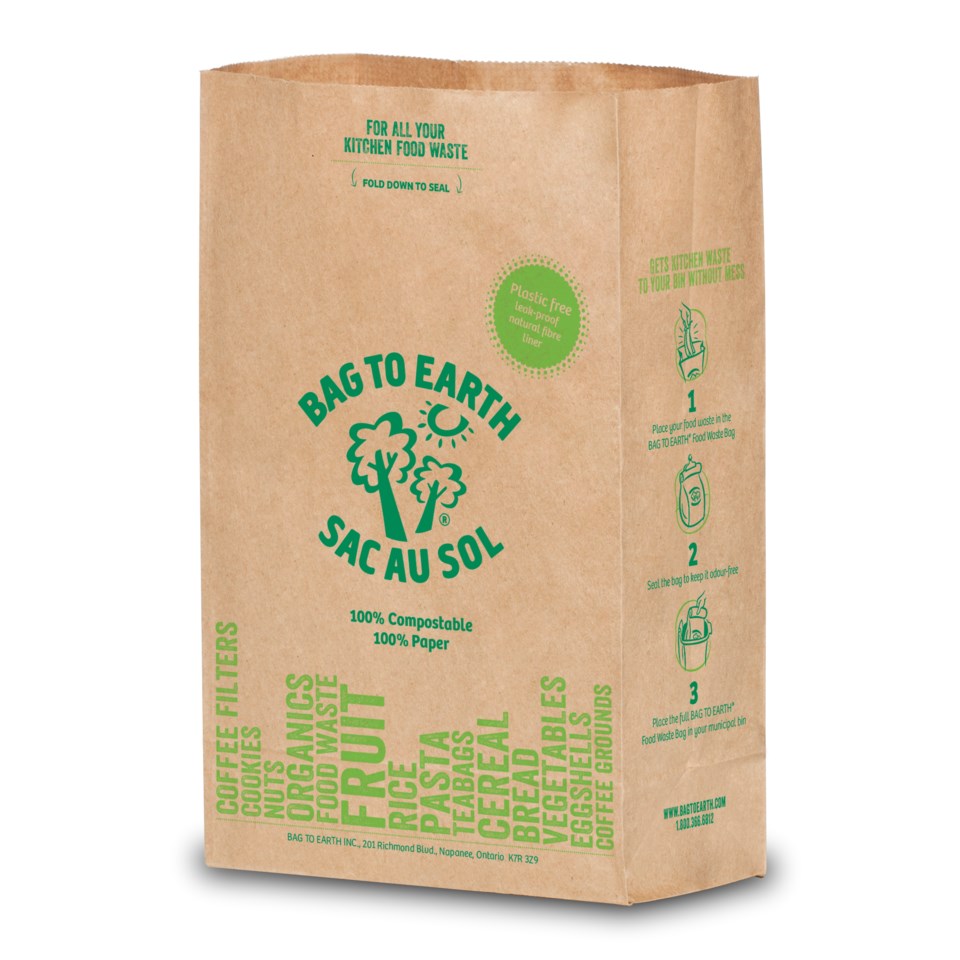From enriching garden soil and lessening the need for chemical fertilizers to reducing methane emissions in landfills, there are many benefits to composting.
For years, proactive folks have been starting their own at-home composting programs to process such items as raw fruit and veggies, teabags, coffee and eggshells. These days, though, an increasing number of Canadian municipalities are supporting these efforts with organic waste diversion programs that accept additional items such as meat, fish and bones.
One such initiative is the City of Saskatoon rolling out its this spring. The program launched in earnest last month, intending to divert up to 20,000 tonnes of waste from local landfills.
Still, let's be honest. Sorting, storing and discarding food scraps in a kitchen bin or an outdoor receptacle can be unsavoury, and there's a strong chance you might encounter an unpleasant mess, says Jennifer Duncan, senior regional account and retail supervisor with .
Luckily, Bag to Earth is the creator of a BPI-certified compostable, made-in-Canada, 100% paper food waste bag aimed at preventing unpleasant messes from ever happening.
Harnessing the power of paper

Since 1946, the Napanee, Ontario-based company has been manufacturing Kraft paper packing products for a variety of industries, and their food waste bags, available in a small size designed to sit on a counter, and a large size made to fit in a receptacle on the floor, make composting as hassle-free as possible.
One of the main barriers to beginning an at-home composting program, explains Duncan, is the learning curve involved.
“A lot of people think they’re creating more garbage by composting,” she says. But with her family’s composting program, which involves separating sources into recycling, garbage and food scrap components, Duncan has been able to reduce garbage to one bag every two weeks for her family of four.
Other obstacles to composting involve aversion to odours that can result from leaving food scraps in a bin on the counter for days at a time, leakage from composting bags, and the mess that can happen when transporting food scraps from your home to the curb.
Bag to Earth’s food waste bags resolves these issues, leaving residents with no excuse not to compost. The bags have a natural cellulose wood fibre lining (“clear paper”) making them leak-resistant and able to hold items such as watermelon rinds, wet paper towels and tea bags. They’re also made from 100% natural and renewable resources that are regenerated in sustainably managed forests.
Every component of the bags—from the paper to the glue to the vegetable-based inks—is 100% compostable.
You might be thinking, “This sounds great, and I’m almost on board, but what about combating the potential smell?”
To that, Duncan says that Bag to Earth’s compostable food waste bags are specially designed to be folded over and secured with a clip, which is very effective at keeping odours from escaping into the air.
“You can even put meat in the bags, and it doesn’t smell,” she describes. “Then, when it’s full, you take the clip off and put it directly into your Green Cart. This way, you don’t have a messy kitchen bin to clean up.”
Ultimately, Bag to Earth provides easy, clean, hassle-free, odour-free, no-mess transport of food scraps from your kitchen to your Green Cart, with no kitchen-catcher to clean out when you’re done. What could be simpler?
Bag to Earth food waste bags are available at retailers in the garbage bag aisle. Visit to learn more.




